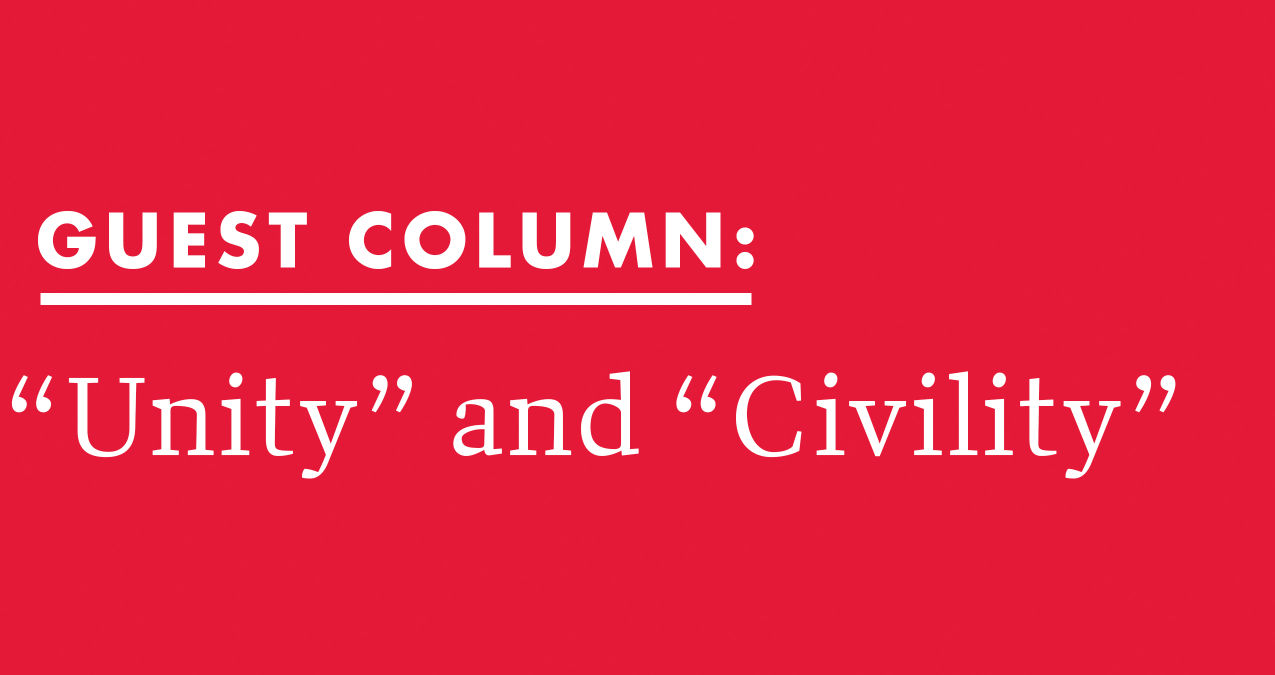
Unity and civility
I want to clarify something I shared at the open forum on April 2, which was subsequently reported on in The Diamondback and then commented upon in two editorials. I suggested: “Beware of words like ‘unity’ and ‘civility.’ The intentions might be good, but these words are often used to dampen dissent.”
The Diamondback reported that I suggested “avoiding” the words, a guest column indicated that I said people should “eschew” these words and a columnist said that I said we should “not use” these words. Being cautious about our language and thoughtful about the meanings of our words is not the same as simply avoiding certain words. I want us not only to be cautious about the words, but also to be thoughtful about their meanings.
The word “civility” is loaded with all sorts of baggage. If you look up the definition, you’ll likely see many synonyms such as “politeness” and “courtesy” and “good manners.” In truth, these things are in the eye of the beholder. They harken to certain ideas of social class. The idea behind “civility” has been used to oppress many people, to talk about the need to “civilize” those “savages” — the “uncivilized” people who hadn’t yet been colonized.
The word “unity” could be seen to imply that we should all hold hands and get along. It can tend toward homogenization and toward glossing over the differences that make us unique. I believe all things are intimately connected, and in some ways, unity is a beautiful idea. But I also think we are not “all one” in our ideas and strategies for creating change, nor should we strive to be.
Too often, people are expected not to get angry about being oppressed. They are supposed to express information about how they are oppressed without feeling, without hurt, without anger. It is treated as though yelling and screaming or disrupting a meeting is uncivil but failing to produce an adequate response to or protection from racism and sexism is acceptable as long as you use pleasant words.
The truth is that much successful advocacy for social justice has come under terms that many would deem “uncivil” and which showcase “disunity” — labor strikes, sit-ins, protests, occupying private and public spaces in ways that are illegal or an inconvenience to others, takeovers of highways and meetings and buildings. Some of these are tactics in which Martin Luther King Jr. and other civil rights leaders we like to quote have actually engaged. Listening and creating an open space where we can each express a variety of viewpoints is still a critical, if not primary, tool. But not everything can be solved through polite dialogue.
Sometimes, we must be disruptive. Indeed, for a university that seems to embrace buzzwords like “entrepreneurial” and “innovative,” I would hope that we’d also embrace disruptive innovation. I don’t advocate disruption for the purpose of being disruptive or as a first resort. However, when disruption can be employed as part of a thoughtful, nonviolent strategy for social and institutional change that includes concrete and feasible requests and outcomes, then why not? It often seems to work. Sometimes, it’s the only thing that works.
Nick Sakurai is the director of leadership initiatives at the LGBT Equity Center at this university. He can be reached at sakurai@umd.edu.



